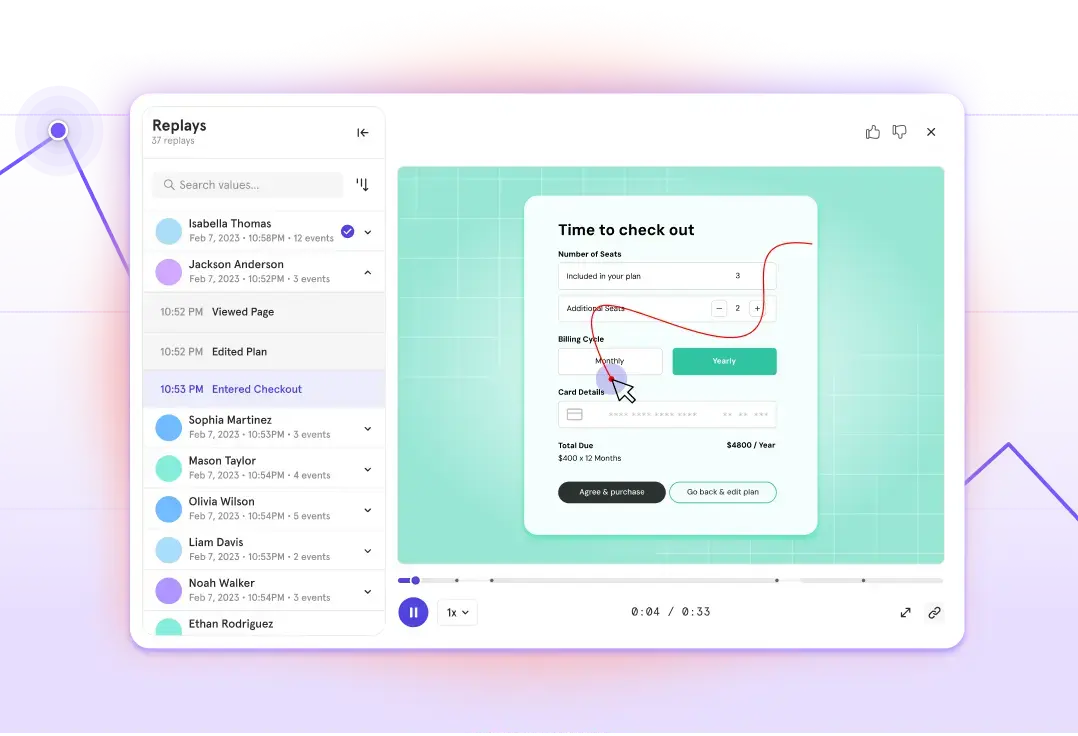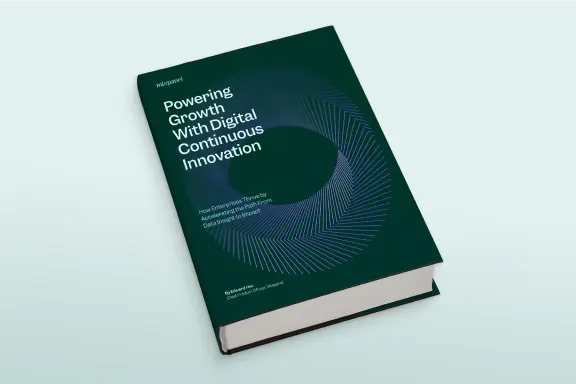
He helped shape WallStreetBets. Now Kevin Xu is betting on his own social app.

AfterHour more or less began with your online persona, Sir Jack. Would you say his growth in following and level of influence is something that you actively built, maybe pulling from your experience building products?
No, Sir Jack was a complete accident. In fact, he was born out of pure ego.
I started trading stocks a lot during the early pandemic, and I made a lot of gains. I decided to share about those gains when I saw somebody bragging about their “20x gains in four years” on the WallStreetBets subreddit. I thought to myself, “I can one-up that.” So I revived one of my old Reddit accounts I made back in 2010, Sir Jack, to post something like, “Here’s my 20x gains in four months.” After that got to the front page of WallStreetBets, I decided to stick with it and post a lot more of my gains and my losses, too.
Eventually, my posts began getting more and more people in the comments asking great questions about retail trading and sharing their own wins, losses, or other experiences and points of view. It started feeling like a community.
So your community was gathering on Reddit and Twitter, but I’m guessing you started to see the product gaps that something like AfterHour could fill?
I learned in my experience that pseudonymous but verified is the best combination for a trading community. And other platforms can’t really provide this, so I’ve made it the core thesis of AfterHour.
The reason I started posting my trades as Sir Jack is because it can feel really uncomfortable talking about finances under your real name. Under Sir Jack, I felt so much more free to talk about some of my more insane ideas, like GameStop back in October of 2020.

But on places like Reddit, it was easy to see the downsides of anonymous accounts sharing unverified “gains” and trading insights.
When I started my Race to 10 Million subreddit, there was this one dude, I won’t name him, who gained a large following and claimed to have hit the 10 million. But it turned out he was faking it. Someone did a deep dive into how pixels were off in the screenshots of his trades and everything. Along the way, this guy started shilling penny stocks and other disgusting stuff, so the community was pretty upset and felt like they’d been frauded.
I like to think I gained trust with Sir Jack by being consistent. I would post every day, all the numbers would line up, and I didn’t only show the wins. I wanted AfterHour to build on that element of verification and trust, and the way we do it for all users is by connecting anonymous accounts to real financial institutions to verify real trading positions.
Social media is a messy product landscape right now with the stumbles of X, formally Twitter, giving an opening for copycats to take the crown of the best “virtual town square” platform. AfterHour is going in a different direction and targeting a specific purpose and audience. Is that where the user appetite is?
There was a period of time when people didn’t want another app on their phone—especially for social media. But I think that’s changed. If you open Twitter or Reddit these days, you feel like you’re behind and that maybe those places are getting too big.
But if you’re going to build a differentiating social network, it really has to be at least a 10x or 20x differentiator. It can’t just be built on decentralized tech or made only for cat and dog pictures. It has to have features and community and built-in primitives that are fundamentally different or structured.
For example, we are building features around earnings reports and price targets. We call it DD, which is due diligence, and it’s supposed to help users communicate their thesis for stocks so it’s easier to follow someone’s train of thought on a position. This is specific for enhancing that experience for the stock-picking community. So I think if you are going to build any kind of specialized social network, it has to be fundamentally different, not just like, “Oh, go here and talk about this.”
What would you say has been more helpful for finding product-market fit, your experience as a product builder or your experience as Sir Jack?
I think it’s been a big help that I am the ideal user and I know the nuances of what the modern retail trader is looking for. I think most people building a stock app today would start by just copying and pasting what you see on Robinhood or Google Finance, right down to that giant table of financial data. But I know 90% of that table doesn’t matter. There are only two or three numbers on there that really matter, and we should just emphasize those. As a modern retail trader, I think I’m able to provide that kind of intuitive lens and focus on the things that really matter.
The other part is I still have a following. People want to hear from me, and I get to hear from them. That’s helped a lot with building this. Sir Jack is basically my CMO.
"I think if you are going to be build any kind of specialized social network, it has to be fundamentally different ... It can't just be built on decentralized tech or made only for cat and dog pictures."

Let’s talk about growth. I saw a Reddit post from years back where you, as Sir Jack, called your stock market gains “luck.” I’m assuming you’ll be relying on more than luck for growing AfterHour. What levers are you pulling?
I’m not looking for a flash-in-the-pan social media app success. I want this app to be my legacy, a real business spoken in the same breath as Bloomberg in a few years. So I’m growing this methodically.
Basically, I’ve been calling the last few months phase zero. It’s really been about seeding the community and focusing on retention and engagement.
The growth tactics were fairly manual. I was popping into Discords and doing AMAs. I was going on Reddit, making posts, talking to as many people as I could, and asking them all to invite their networks. I was even DMing people and saying, “Hey, can I give you a personal onboarding on our app?” So it’s been a very manual seeding of the community, looking for really strong retention, and I’m really glad that we’re seeing it.
Next, we’ll be able to start emphasizing more on actual product-led growth tactics.
You mentioned you’re seeing good retention. Is that something you’ve helped along by acting on user trends you’ve seen in Mixpanel?
For retention efforts, we used Mixpanel to discover two things that have helped a lot: adding a “follow suggestions” page in our signup flow and clarifying what data we grab from Plaid in our financial institution connection.
Right now, 50% of our users open the app five days a week or more—basically every market day.

I’ve seen you poke at fun on social at founders who love to post unlabeled Mixpanel charts that go up and to the right or talk about vanity metrics wins. Do you see any value in “building online” or throwing out proof here and there that you’re growing?
The Kevin Xu Twitter account has mostly just been for fun and getting a little FOMO from tech Twitter. And so sharing a Mixpanel graph there, for me, is really about social proof, stroking the ego, getting a little FOMO from investors.
But there’s definitely something to posting a Mixpanel chart, in particular. Mixpanel has a very recognizable brand and color purple. So when you see a Mixpanel chart shared on Twitter, it’s like, “Okay, this founder is using the best tool for their analytics.” And, of course, it helps if the chart is showing off a pretty amazing number.
But it’s never about just one data point. It’s always multiple data points. For example, if I tweet something like an unlabeled line chart that goes up, it could get a little bit of exposure with some investors or founder friends and they may take me more seriously or think, “Oh, I should catch up with Kevin.” Or maybe they actually heard about AfterHour from someone else and now they’re seeing my chart on social. All of that might even prompt them to go check out our activity in the app. So all of a sudden you create these three data points about Kevin, and they might lead to a conversation or an intro or something. I think that’s how you manufacture opportunity.
"When you see a Mixpanel chart shared on Twitter, it's like, 'Okay, this founder is using the best tool for their analytics.' And, of course, it helps if that chart if showing off a pretty amazing number."
What else have you learned in your first months that you’ll use to take AfterHour to the next level?
Learning more about who our users are has helped me understand why they signed up. I’m able to kind of intuitively understand and pick up on what the underlying reasonings for spikes in growth or spikes in retention or engagement are. One insight we’re going to act on in the product is that a lot of our really big growth wins have revolved around events.
What’s unique about the stock market is that the entire industry and communities around it revolve around the New York Stock Exchange schedule, and it’s pretty unique in a lot of aspects. The market opens and then it closes. There are earnings reports for every company in every quarter. There are CPI prints. Every month or two, [Chair of the Federal Reserve] Jerome Powell speaks. So I’m trying to figure out a way to build these live events into the app to create more activation. Maybe we have reminders of these events coming up. Maybe we surface how many people are paying attention to them, how many people are betting on them, etc. I think there’s a lot of potential there.
Our app is not built around this at all yet. Right now, the app is mainly asynchronous posts similar to Reddit. But we do want to lean into the liveness of these stock market events.
Before we wrap, I have to ask: Who is playing you in the Dumb Money movie? It’ll be a crime if Sir Jack isn’t in it. I’m hoping at the very least they called you up for script research.
Haha. I’m not sure if they gave Sir Jack a cameo or not. They never got in touch with me. I’m hoping to at least be in some of the Reddit screenshots. We’ll have to watch to find out!
This interview was lightly edited for clarity and brevity.


